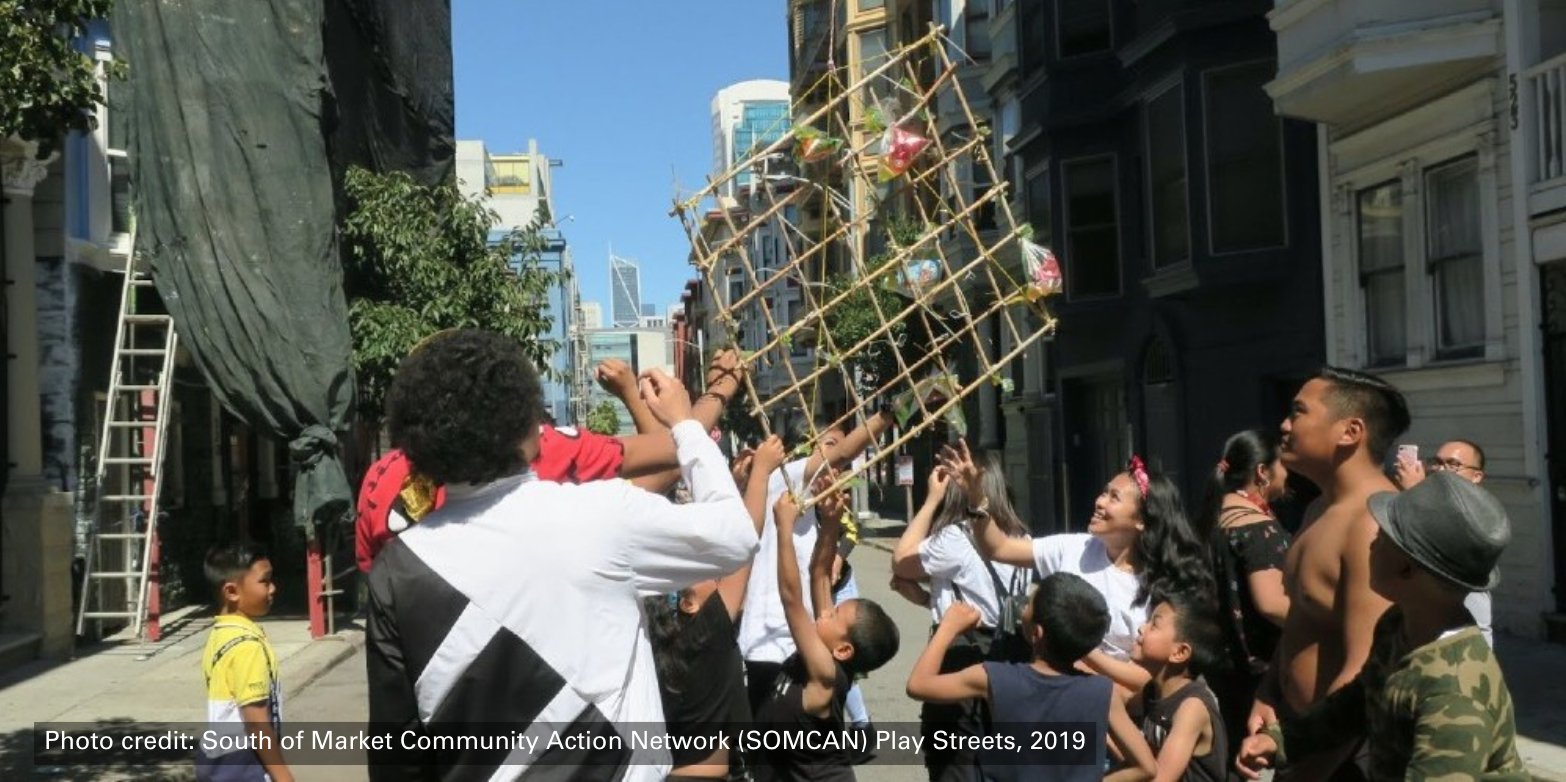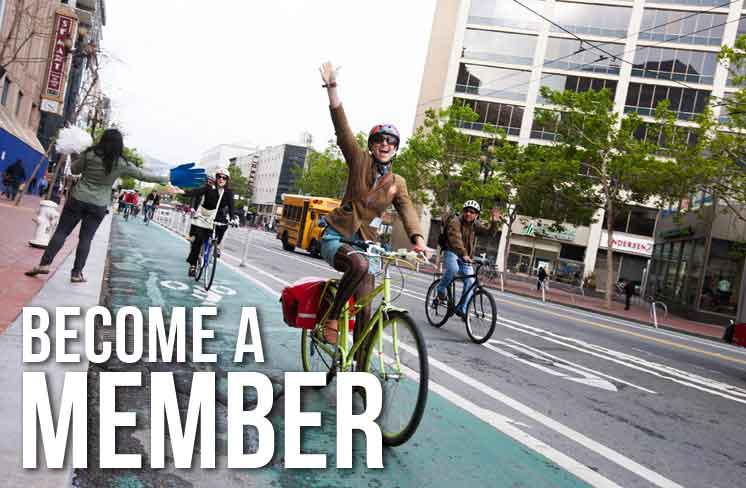Update as of 9/29: The vote has been moved up to Dec 6.
Update as of 9/16: The vote has been moved up to October 14th.
Update: The vote has been moved up to October 4th.
On September 20th, the SF Municipal Transportation Agency (SFMTA) Board of Directors will be deciding the future of Slow Streets. This is our chance to not only make the program permanent, but expand its scope so that every SF neighborhood can enjoy these people-first spaces to bike, roll, and walk on. Your San Francisco Bicycle Coalition is working alongside advocates and partner organizations to ensure that the proposed program is effectively designed so that it has overwhelming support to pass. To get there, we must make sure that the program is implemented equitably, centers street safety, and connects communities, taking into account all the needs, desires, and lived realities of the people who live in all our communities.
The current program has seen great successes in some SF neighborhoods, but has fallen short of these ideals in others. Some low-income, predominantly Black, Indigenous, People Of Color (BIPOC) communities, such as the SoMa, had to fight for months to get Slow Streets on which to safely distance. In the Southeast neighborhoods, Slow Streets were implemented without enough outreach or community input — and they were unsuccessful due to lack of local support. The Tenderloin never got them at all. All of these areas also have a large number of streets on the High-Injury Network, the streets in SF with the greatest incidence of serious traffic injuries. If the program continues to fail these neighborhoods, it will fail in building a more accessible and equitable San Francisco.
To better understand and implement the diverse priorities of all these neighborhoods, we’re part of a working group of organizations representing the senior and disability communities, safe streets advocates, and community-based organizations from Bayview-Hunters Point, the Excelsior, and the Tenderloin. This group is developing recommendations for the SFMTA to incorporate into its program proposal.
To make sure our recommendations consider the nuance and diversity of opinion within those communities, we’re also reaching out to other neighborhood groups across the city to provide context and ask questions, listening hard to what their members want to see in their neighborhoods. We’ve already held listening sessions with groups in the Excelsior, SoMa, and the Tenderloin, and we’re currently setting up more. We’ll bring what we hear from these groups back to the working group and advocate for these points of view to deeply inform our recommendations.
Already we’re hearing important perspectives. Some community leaders, while wanting safer, slower streets, expressed frustration with a history of city agencies constantly making plans on behalf of communities, rather than inviting them in as invaluable collaborators, highlighting the need for improved outreach and engagement by the SFMTA, as well as a cooperative approach with historically marginalized communities. Several groups have emphasized that simply closing streets to through traffic would be a hard sell with their constituents — but that replacing vehicle traffic with activities or programming that benefits the local community would be much more welcomed.
In the coming weeks, we’ll share more about the recommendations that emerge from the Slow Streets working group. And the conversations won’t end there — through September 20 and after, we will keep engaging with our members and other city residents to continue deepening our understanding and advocacy around Slow Streets. Together, we can shape a future where every neighborhood in our city has people-centered streets that suit their specific needs and desires, and are activated in a way that brings everyone joy. Slow Streets are how we can make this future happen.
We need support from you, our members, to keep this conversation going and help shape the vision for an ongoing Slow Streets program. Sign up for Slow Streets alerts to learn more about how you can weigh in and support permanent and equitable Slow Streets.


